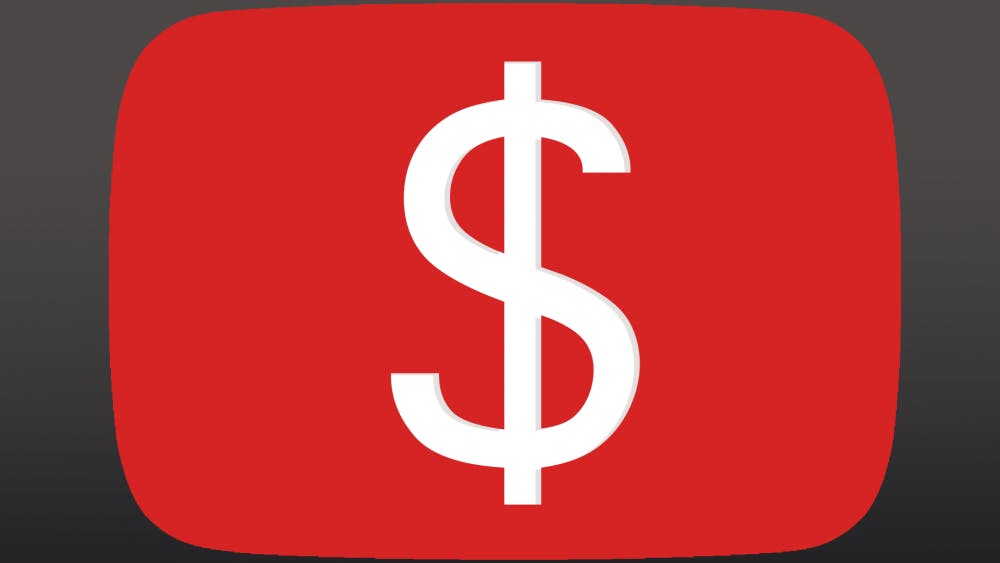by Sarah James
Over the past several months, content creators on YouTube have had an uphill battle when it has comes to their ad revenue. Many YouTubers have had their videos randomly demonetized, most without any notification or reason why. Why is this happening? Well, many large companies have pulled their advertising from YouTube after seeing that ads were placed on inappropriate videos. Videos showing extreme violence or containing hate speech weren’t caught by YouTube’s monetization algorithm and were still running ads, and companies like McDonald’s, Walmart, Verizon, and many others have decided to pull their ads from YouTube in general. In response, YouTube has had to pull back on their monetized content, which makes sense from a business standpoint, but does not bode well for the content creators who have made their living on the platform.
Many large YouTubers have opened up about how this demonetization has affected their channel. Co-creator of VidCon and one-half of the famed Vlogbrothers, Hank Green, made a video last week titled, “The Adpocalypse: What It Means.” Not only did Hank coin an amazing term for what is happening with YouTube right now, but he also shed a lot of light on what this demonetization is doing to content creators. In this video, the younger Green brother discusses advertising on the Internet in general before diving into the current YouTube drama. He comments that, “The average YouTube channel gets, like, fifty times less revenue than the average TV channel per minute of viewership. Why? Why are my eyeballs worth ten times more when I’m watching TV than when I’m watching YouTube? They’re the same eyeballs; I promise.”
Advertising on the Internet for online personalities to make a living is still a very new concept, especially when compared to the behemoth that is advertising in broadcast media. Over the past several years, there has been a growing “us versus them” mentality when it comes to YouTubers and mainstream media. More people of the younger generations watch YouTube and not mainstream television shows. Most college students I know, including myself, only turn on the television because there’s a gaming console connected to it. When you ask a group of twenty-year-olds what they are watching, they’ll more than likely give you a list of shows on Netflix or YouTube channels they’re subscribed to. The Internet as a primary source of entertainment is a much more popular idea now than it was five years ago. Yet, YouTube and its content creators are not held anywhere close to the standards of television, especially in the eyes of advertisers.
Hank then goes on to talk about YouTube’s recent issues with demonetizing certain channels, asking himself and the people watching if it’s worth it. Is YouTube’s reliance on advertising helping or hurting those pouring their lives into creating content? Is this system of advertising outdated and not sustainable for the ever-changing Internet? Bigger YouTubers are starting to look towards being independently funded in response; look at Philip DeFranco. Phil, who hosts a weekday news show and currently has over five million subscribers, announced this past Monday that he is now a completely independent creator, and is using crowd-funding site, Patreon, to launch his own news network. The largest YouTuber on the planet, PewDiePie, announced last month that he would be moving to Twitch, where streamers are funded by viewers alone. There are plenty of other YouTubers with millions of subscribers who are looking at this fan-funded option, and it seems to be working.
 But what about the smaller YouTubers? Sure, content creators with millions of followers are definitely going to receive the support they need from fan funding, but people without fans aren’t getting anywhere. As someone who has a very small channel (less than 1,000 subscribers), it’s discouraging to see this response from YouTube and the advertisers that once supported it. Creating a successful YouTube channel, one that could feasibly sustain the cost of living, is something that takes an insane amount of time and effort. If I wanted to really get my YouTube channel to a place where I could make money off of it, the amount of time and energy I would need to pour into it would be the equivalent of a full time job. I can’t afford to do that, especially when I may not even be monetized to begin with. All those children of the Internet, the ones who dream of making it big on YouTube, may not even get the chance to try.
But what about the smaller YouTubers? Sure, content creators with millions of followers are definitely going to receive the support they need from fan funding, but people without fans aren’t getting anywhere. As someone who has a very small channel (less than 1,000 subscribers), it’s discouraging to see this response from YouTube and the advertisers that once supported it. Creating a successful YouTube channel, one that could feasibly sustain the cost of living, is something that takes an insane amount of time and effort. If I wanted to really get my YouTube channel to a place where I could make money off of it, the amount of time and energy I would need to pour into it would be the equivalent of a full time job. I can’t afford to do that, especially when I may not even be monetized to begin with. All those children of the Internet, the ones who dream of making it big on YouTube, may not even get the chance to try.




















